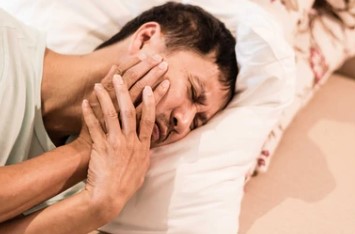Mumps is a viral infection caused by the mumps virus, so antibiotics are not effective in treating the infection itself. Antibiotics are only effective against bacterial infections, not viral infections.
The treatment for mumps is primarily focused on relieving the symptoms and managing the discomfort caused by the infection. Here are some general measures that can be taken:
- Rest: Getting plenty of rest is essential to allow the body to recover and heal from the infection.
- Pain relief: Over-the-counter pain relievers such as acetaminophen (Tylenol) or ibuprofen (Advil, Motrin) can help alleviate pain, reduce fever, and ease discomfort associated with mumps. However, aspirin should be avoided in children due to the risk of Reye’s syndrome.
- Fluids and hydration: Encourage the affected person to drink plenty of fluids to stay hydrated. This helps prevent dehydration and aids in recovery.
- Soft foods: Eating soft or liquid foods can be more comfortable for individuals with swollen salivary glands. Avoid acidic or citrus foods that can trigger pain.
- Warm or cold compresses: Applying warm or cold compresses to the swollen areas can help alleviate pain and reduce swelling. Use a cloth soaked in warm or cold water and gently apply it to the affected areas.
It’s important to note that complications from mumps are rare but can occur. If you suspect mumps or if you or your child has been diagnosed with mumps, it’s advisable to consult a healthcare professional for proper evaluation, guidance, and monitoring during the recovery period. They can provide personalized advice based on the individual’s condition and symptoms.
What Virus Causes Mumps
The virus that causes mumps is called the mumps virus. It belongs to the family Paramyxoviridae and is a single-stranded RNA virus. The scientific name for the mumps virus is the Rubulavirus, specifically the Rubulavirus genus. This virus is highly contagious and primarily spreads through respiratory droplets from an infected person. It can be transmitted through coughing, sneezing, or close contact with an infected individual. The mumps virus primarily affects the salivary glands, leading to swelling and inflammation. In addition to salivary glands, it can also infect other organs, such as the central nervous system, pancreas, testes, and ovaries.
How to Prevent Mumps?
To help prevent mumps, here are some important measures you can take:
- Vaccination: The most effective way to prevent mumps is through vaccination. The MMR vaccine (measles, mumps, and rubella) is routinely given to children as part of their immunization schedule. It is also recommended for certain adults who have not received the vaccine or have not had mumps before.
- Maintain good hygiene practices: Practice proper hygiene, including regular handwashing with soap and water for at least 20 seconds, especially after coughing, sneezing, or being in public places. Encourage children to cover their mouth and nose with a tissue or their elbow when coughing or sneezing.
- Avoid close contact with infected individuals: Mumps is highly contagious, so try to avoid close contact with individuals who are known to have mumps or are showing symptoms of the infection.
- Stay home when sick: If you or your child develop symptoms of mumps, such as swollen salivary glands, fever, and muscle aches, it’s important to stay home and avoid close contact with others to prevent the spread of the virus.
- Follow public health recommendations: Stay informed about any mumps outbreaks in your community and follow the recommendations provided by public health authorities. This may include measures such as isolation or quarantine for affected individuals to prevent further transmission.
It’s important to note that while the MMR vaccine is highly effective, no vaccine provides 100% protection. In some cases, vaccinated individuals may still contract mumps, but the symptoms are usually milder compared to those who are unvaccinated. If you have concerns or questions about mumps prevention, it’s recommended to consult with a healthcare professional or your local health department for specific guidance and recommendations based on your individual circumstances.

